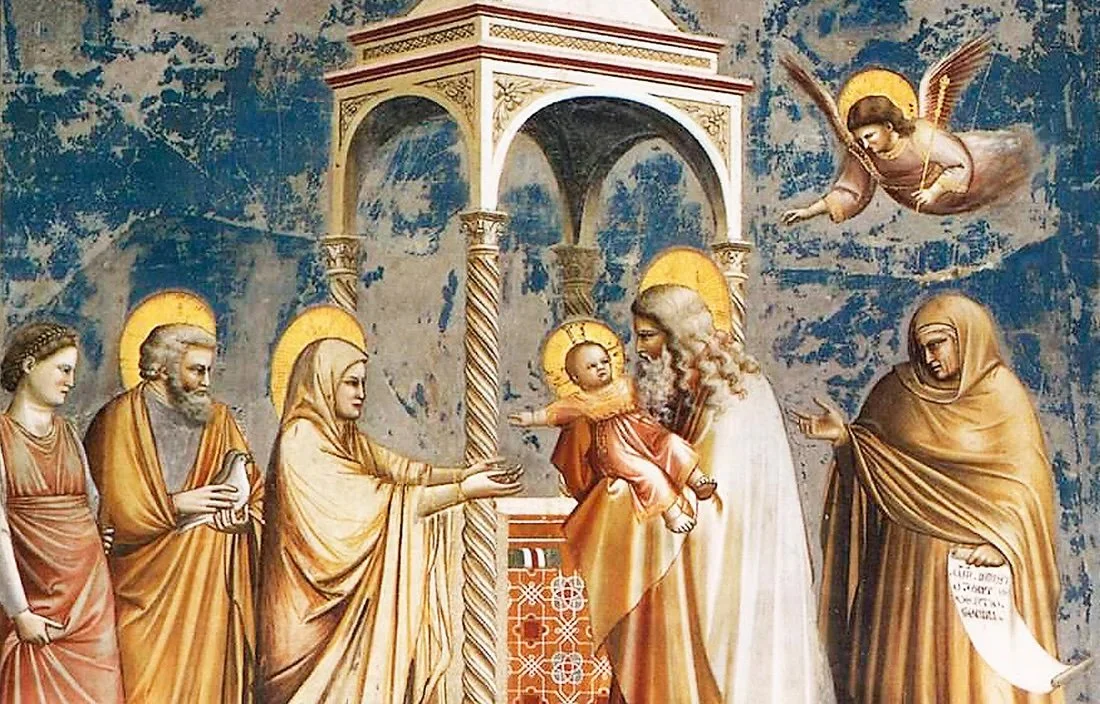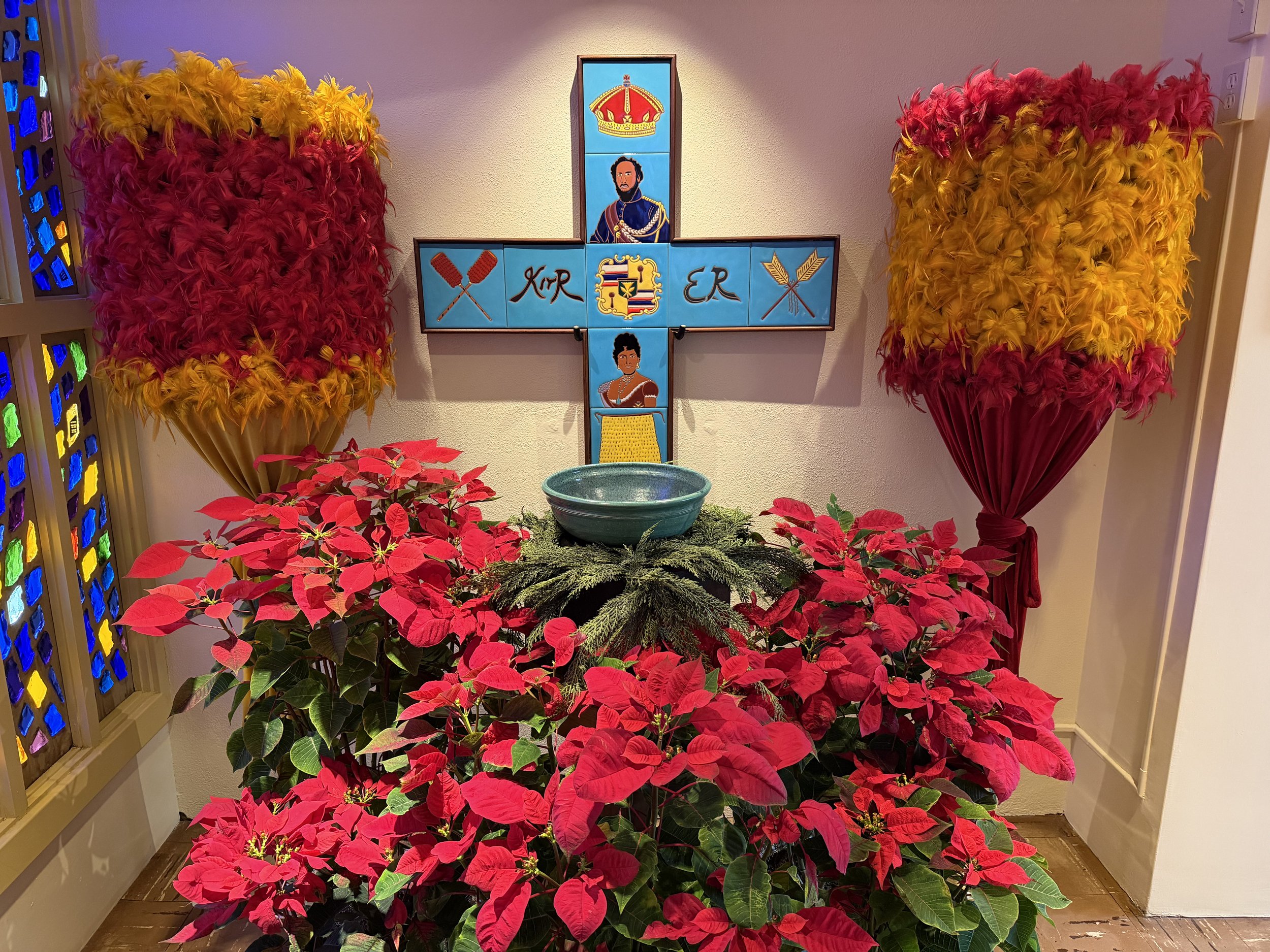From the Rector: Cultivating Figs
/20 March 2022
Luke 13: 1-9
So if you are standing, watch out that you do not fall. It was two years ago that we closed this church due to the pandemic, and if we reflect on the past two years, we have seen so many things that were standing, that now have fallen. Institutions have fallen, habits have fallen, people have fallen. Some have said that the pandemic simply accelerated the expected ending of so many things.
In the church we have been curious to see the effects of the pandemic on the size of the church. Did the church decrease greatly? How has the institution changed? Not long ago I was at a zoom gathering of clergy, and the topic was the testing of the church in pandemic times. Most of the clergy, even though there has been decline, have welcomed the results of the pandemic on the institutional church. Many prefer worship via Zoom, and many thrived on the innovations brought about due to technology. Many also felt that we need new expressions of worship beyond the daily office and the mass. About half were happy to have given up choirs and organs so that worship could be more organic and based on pop culture. The vast majority would be glad to not have a church building, and to simply meet via technology. I realized that as a priest I am part of an incredibly small minority of clergy that champions in-person worship, that prefers to support live musicians, and is willing to support the idea of having church buildings.
And what I have said is just a microcosm of the changes brought by the pandemic. I have only spoken about the institutional church, a small sliver of the sea change that has happened within two years. Greater than the anxious hand-wringing of the church, have been the changes in work habits, the mental effects on huge numbers of people, and the momentous amount of death. So much was standing, and then so much fell. If you are standing, watch out that you do not fall.
I am told that the children of alcoholics and addicts always live with a type of impending fear of everything falling apart, and this is especially acute when normality or stasis is happening. When the parent is not on an addiction binge, when things are steady, children will not be able to enjoy the steadiness, because they are always fearing when the parent might fall into a binge. Good times in the family are always fleeting, and there is always the fear that the next fall could be worse than ever before.
And then there is Ukraine. A beautiful country is being tested to the extreme due to no fault of their own. They were standing as a democracy - now they are plunging into chaos due to an outside aggressor that should be stopped. So often when we are standing, and we find ourselves falling, life is completely beyond our control.
I would never wish that our society go through a pandemic again, and God save all children that suffer due to their parents, and God save all parents that suffer due to the diseases of addiction, and may God save the people of Ukraine, and may God save the people of Russia too from their terrible leader. One of the realities of the human experience is that we all need saving - most often from our very selves.
On the surface, today’s Gospel is not the easiest to grasp or understand. The text might be referring to a slaughter of Galileans who rose up against the Roman occupation. Perhaps they died because they fought back – the scholarship is unclear. Regardless, it is human nature for people to think that people die or are hurt or have bad luck due to their own fault. Thus, people ask Jesus what did those Galileans do to deserve such a death. Why did the tower of Siloam fall?
We hear such questions in our modern world as well. When people died of COVID people said, if only they would have eaten better and not been diabetic they would have lived. When people die of drug overdoses people say, they should have said no to drugs. When people die of HIV/AIDS people have said, they should not have been so promiscuous.
Today’s Gospel makes it clear that God in Jesus Christ despises such statements. We are to repent of such thinking. Followers of Jesus do not waste their time judging the dead - rather authentic Christianity calls us to simply minister to the need. We all know that any one of us, as we are standing in this church, may find ourselves falling tomorrow. People die every minute - the fall could come at any moment. Testing is always nearby.
When Jesus is talking to his followers in today’s Gospel, he is making the argument for peace and reconciliation - not condemnation. As those around him are occupied by Rome, he does not call them to fight, but rather he calls them to convert.
Now that’s a word many consider nasty - convert. Nevertheless, that is what Jesus calls us to do - to convert for Christ. It will be better for all involved if the followers of Jesus convert their occupiers to the Gospel of peace than to use the worldly ways of violence, insurrection, and warfare. Convert your enemy to Christ - only then you might have a chance to live.
In the Old Testament, the Israelites were the chosen people of God, and they fell continually. Job was super faithful, and he fell hard. The disciples were chosen to become apostles of the early church, and they fell continuously. Each one of us here has been baptized, and each one of us falls regularly. The reality of life on this side of the curtain is that we shall forever be tested. We do not live in a perfect creation yet, and it will be a long time until we witness God’s perfectly redeemed world. Testing and trials, standing and falling, are the realities of our existence.
So where is the joy? What are we to do? Where is the hope amidst the trials, temptations, and falls?
Some of you know that the rectory has a fig tree, and that fig tree produces abundantly. It produces so many figs, that I have become bored with the fact that there is a fig tree. In the Old Testament world, after the tree of life and after the tree of the knowledge of good and evil, the fig tree is mentioned. Figs are associated with the promised land and with prosperity and security. In the Song of Solomon, when the fig tree produces fruit, love is in the air.
Whether you are standing or falling, and whenever you are in the midst of trials and temptations, pandemics and wars, the vocation of the follower of Jesus is to cultivate the fig tree - to cultivate love. God shall create the perfect world when God is ready to do so - that’s not our job. We can never create a world without problems and sin. What we can do is use our free will for love in whatever situations we find ourselves. When trials and temptations come, we have a choice. We face the trials and temptations with the language of trials and temptations, or we face such challenges by growing love - by cultivating fig trees.
The fig tree is just another rendering of the cross, just as the tree of life and the tree of the knowledge of good and evil are renderings of the cross. As always the cross teaches us everything we need to know. It was at the cross that the greatest trial the world has seen occurred. Yet, even at the cross, God cultivated love. Even at the cross, love was in the air, for our God was busy cultivating figs.
Father Paul Lillie +








